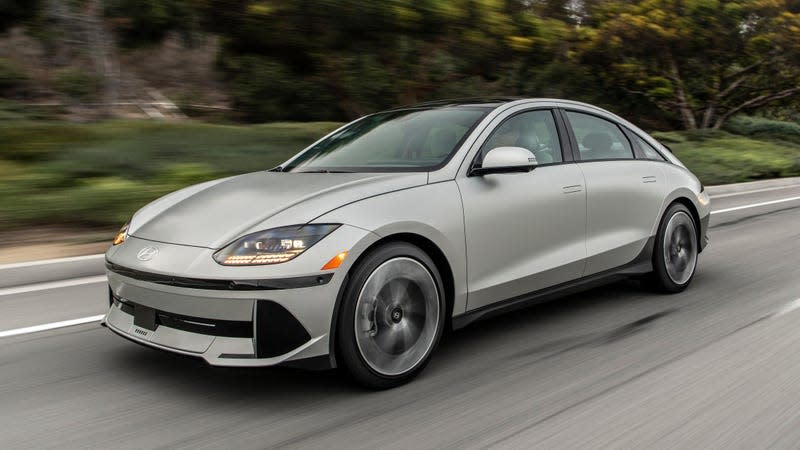Are Cars From A Couple Years Ago Really More Desirable Than The Latest New Cars?

If you’ve needed to buy a car sometime in the last four years, you understand how rough it’s been out there. Dealers were only stocking the highest trim levels and still adding markup, used car prices were through the roof and availability was limited. Things have been getting better recently, though, with used prices dropping, dealer markups largely disappearing and some models even being available for less than MSRP. Still, some buyers have decided that they’re out of the new car game for good, not necessarily because they can’t afford it, but because they believe old cars are superior.
The Wall Street Journal recently published an article that looked a little deeper into this phenomenon. Sadly, it relies heavily on anecdotes gathered from social media responses, so it doesn’t really get into how common that belief actually is, how it’s grown — or not — over time or much in the way of statistical analysis. So it’s important to take anecdotes with a grain of salt. After all, they were responding to the question, “Name a new car/truck/SUV that is not as desirable as the design it replaces?”
What the responses did show is that people have a wide variety of reasons for not wanting a new car. Some are concerned about cybersecurity issues. Others are wary of newer features such as start-stop systems and continuously variable transmissions and diesel engines that require diesel exhaust fluid. Still, others don’t want to give up certain features, such as their car’s manual transmission, CD player. Alternatively, they may just hate touch screens.
Many of those concerns are valid. Data security is a big issue with connected cars, and not all automakers have been good about keeping your information private. Early versions of CVTs and start-stop systems were poorly implemented. Very few automakers still offer manual transmissions. And yet, reading some of the responses, you also pick up on some hints of this mostly boiling down to “new is different, and different is bad.”
“I rented a brand new…Kia Sorento last week and it made me love my last-gen Tahoe that much more,” one person told the WSJ. “The UX completely confounded me to the point where it was more distracting than useful.” Similarly, someone else said, “Recently my wife bought a new Toyota Highlander and it comes with a semester at MIT to learn the turn signal.”
Another commenter even went as far as to insist new cars shouldn’t be called cars at all. “They are tools that are reliable to move you physically but no longer emotionally. The excitement of a new car comes from how it can occupy you while you move from point A to B and relieve you from the arduous task of driving,” he told the WSJ.
If car sales were falling, we’d be more inclined to believe the number of people who genuinely believe old is better than new represents a significant percentage of the buying public. After new car sales cratered in 2020, though, new car sales have trended upward, with more than 15.5 million new cars sold in 2023. That’s still a far cry from the 17 million plus new cars sold in 2015 and 2016, but let’s not forget that COVID screwed up global supply chains, interest rates have been high and wages haven’t grown enough to keep up with inflation.
We may as well be at full employment, but if companies refuse to pay their workers enough to continue buying new, they’re going to be forced to buy used. So it’s a lot more complicated than sales being down because everyone realized new cars are bad. Although, as we previously mentioned, some caution is definitely still valid. Where do you stand, though? If you’re in the never-buying-new-again camp, is it just because of money, or would you still pass even if you could comfortably afford a new car?

 Yahoo Autos
Yahoo Autos 